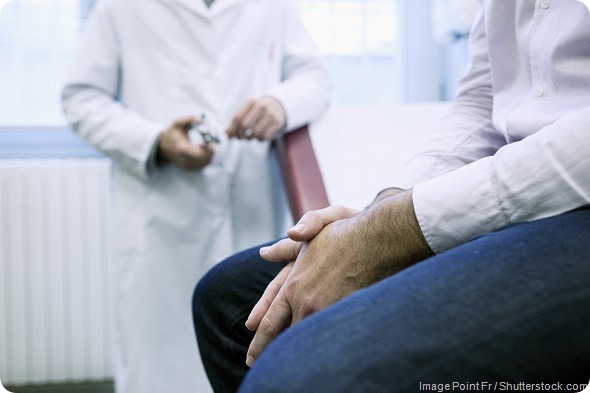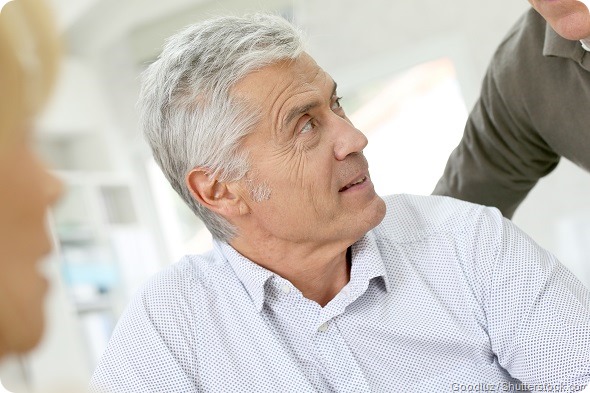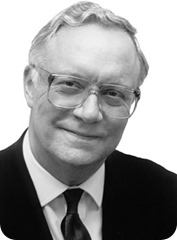Modern patient-directed management is based on optimal, individual medical treatment and holistic personalised patient-centred care.
This is certainly true in prostate cancer where most patients are over 60 years of age. They face a negative physical and functional impact from the diagnosis as well as from the treatment with emotional and social challenges.
The main issues depend on the stage of the disease. In the early stages there are no physical problems and patients fear the treatment complications as incontinence and impotence.
In the last stages of metastatic disease patients suffer from fatigue and pain. In both categories we have to deal with anxiety, depression, loss of body image as well as social and economic concerns.

How can quality of life be measured and how can healthcare professionals identify each patient’s needs?
Health related quality of life (QoL) tries to quantify the qualitative perception of the patient of his physical health and function and his responses to these challenges. It is a multidimensional concept that includes as stated physical, functional, psychological, emotional and social domains.
Again as stated this perception will change over time and stage of the disease. Especially in this older age group as they represent a heterogeneous cohort on life expectancy, functional status and social well-being.
The concept is difficult to measure and remains a methodological challenge. There are over fifty validated QoL questionnaires.
The treating physician has to remember that his first attention should go to the patient (the age, other diseases and his performance status) and then to the stage and grade of the tumor. Treating symptoms and side-effects of treatment promptly in relation to the psycho-social status of the patient is imperative.
What challenges open up for patients and healthcare professionals trying to manage quality of life issues?
The main challenge is an open, straightforward communication between professionals and patients. Professionals need to learn to provide updated, short and clear information and education to the patient in the different stages of the disease with inclusion of the partners.
Time is the most expensive and precious commodity in this setting. Listening and body language are part of this dialogue. If a professional is unable to feel empathy he should look for a laboratory job.
The patient should avoid playing the hero to please his treating doctor. He should report on his physical and psycho-social problems as he perceives it. The easiest is to provide a shortlist of problems (if any) and understand the answers or the advice received.
What resources are currently available to address quality of life issues?
Next to measuring QoL on a validated scale, especially pain, nothing beats a proactive approach where the patient is objectively and clearly informed on his health status and the optional treatments.
The disease impacts the QoL of the partner as well so it is obvious that the partner (or family or close friends) is invited on the consultations as a prequel to exact diagnosis and treatment (if needed).
Information, decision aids, videos and communication with professionals (with time) and patient support groups are helpful. The best communication is listening to patients and only then start to give expertise in treating the disease as well as empathy.
What more can be done to improve the support available for prostate cancer patients?
Outing the problem(s) to partner, family and friends is essential to a quiet approach to the challenges of lesser priority as hobbies, family activities, social achievements. It should made clear that reintegration in society is the goal and a lifestyle adaption can help.
Exercise in the comfort zone and balanced nutrition is advised. Smoking and alcohol should be used in moderation but no patient forgets that 2 glasses of red wine (resveratrol) are good for the prostate!
Joining a patient support group is a good way of staying in the loop of medical progress and social contact.

How important is it for patients and caregivers to share their experiences with others living with the disease?
It is a human instinct to associate with others sharing similar values be it spiritual, social, local and this goes for the majority of patients.
Joining local support groups in a most efficient way to learn of the many supportive measures available for cancer patients provided by the health authorities, social services, professional advice and financial benefits.
Next to survivalship experience it provides an emotional encounter with fellow men and partners on facing the problems. Especially intimacy and incontinence problems become open subjects for dialogue in the group and many times in the couples.
Prostate cancer is a chronic disease in contrast to lung or pancreas cancer making it easier to see it as a project for life. A new life after treatment to be enjoyed with its restrictions and with grace.
What do you think the future holds for addressing quality of life needs in prostate cancer patients?
The development of the genomic and molecular aspects of specific diagnosis and treatment for each individual patient is the ultimate goal to assure the best possible outcomes. Fifty percent of prostate cancer detected by the PSA test do not need immediate invasive treatment or even never treatment.
The progress in treating the other fifty percent through innovations have turned the cancer in a chronic disease where QoL is more important than length of life (LoL).
Awareness and understanding this reality is the best medicine for anxiety and depression. Seeing the patient as a partner in the control of his aging body and new diseases is a wish for all to enjoy.
Where can readers find more information?
We advise strongly to go through the information/education on the subject through the literature advised by your local patient support group and your treating physician.
We would be happy if we were able to say that the media will keep you updated on medical progress. Unfortunately newspaper, magazine or network information lacks a balanced approach to the subject of disease in general and cancer in particular.
About Professor Louis Denis
 Louis Denis became Director of the Oncology Centre Antwerp at Antwerp, Belgium since February 1998 after a long career as academic urologist specialized in urological oncology.
Louis Denis became Director of the Oncology Centre Antwerp at Antwerp, Belgium since February 1998 after a long career as academic urologist specialized in urological oncology.
After finishing his training as an urologist at the Medical College of Virginia in 1964, he joined the urological department of the Antwerp City Hospitals to become coordinating chairman in 1973 and joined the Faculty of the Vrije Universiteit Brussel as Professor in 1978.
He served as President or Board member in a number of national and international medical organisations and concluded his activities as co-founder of Europa Uomo, the European Prostate Cancer Coalition. He was appointed chair of the Flemish Advisory Council for Cancer Prevention from 1983 till 1997. Results included screening programs (cervix, breast and colon Ca), lifestyle programs, recognition of medical oncology, a cancer registry and a pilot program for prostate cancer screening that developed with the support of F. Schröder into the European Randomised Study of Screening for Prostate Cancer (ERSPC). He served the ERSPC as international co-coordinator until 2012.
In 1982 he co-founded the European School of Oncology (ESO). In the wake of its many ideas and actions, he served as officer in the European Institute of Oncology and several professional organisations as ESSO, FECS, ESMO and the Europe against Cancer programs from 1980 till 2006. Here the policies included the development of cancer programs, global orientation and collaboration with WHO.
He pursued two collaborative projects. First he founded a think-tank for prostate diseases, the International Prostate Health Council (IPHC). This successful formula caught on and resulted in the development of 39 national PHC’s. Second he co-founded the International Consultation of Urological Diseases (ICUD) bringing the world’s leadership together in a multiprofessional global consultation still active.
His career as an urological oncologist started as a founding member of the Genito-Urinary Cancer group of the European Organisation for Research and Treatment of Cancer (EORTC). He served the EORTC in a number of functions including President from 1988 till 1991. He served one year as managing launch director of the European Journal of Cancer.
He served as treasurer of the Union Internationale contre le Cancer (UICC), after a long term service in different positions including secretary general from 1998 to 2006.
His recent interest is focused on the organisation and support of cancer patients associations in general and prostate cancer associations in particular. He serves as director of US TOO Belgium and advisor of the Oncologic Centre Antwerp as honorary director. He is the strategic consultant for Europa Uomo, the European Prostate Cancer Coalition. He received the Lifetime Achievement Award from the EAU in 2014 and the ESOP Award (European Society of Oncology Pharmacology) in 2015.
He has edited or co-edited more than 50 books and monographs and more than 300 peer reviewed articles.